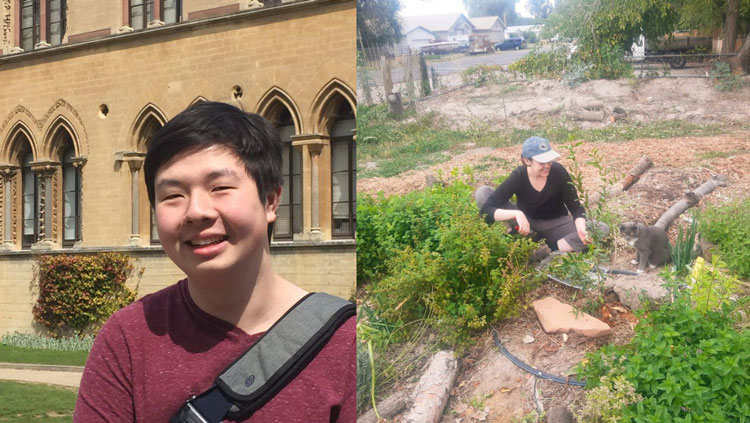Mellon Community Fellows Presentation

Watch Recording
Join the Environmental Humanities Graduate Program for a presentation from the second-year Mellon Community Fellows, Doug Sam and Riley Sayers. The fellows will discuss their local community partnerships and the ways they use humanities tools to further environmental justice. The Mellon Community Fellowship in the EH Program is funded by the Andrew W. Mellon Foundation. Fellows form reciprocal partnerships with a community organization and develop a project that addresses local environmental justice issues.
Event Details:
Thursday, November 11, 2021 | 4-5 p.m. | Watch Recording
Doug Sam's Talk Description:
Doug's talk focuses on the importance of decolonizing environmental education in the
West and the challenges of building relationships between Tribal nations and community
organizations.
Linda Smith writes that “history is not important for [I]ndigenous peoples because
a thousand accounts of the ‘truth’ will not alter the ‘fact’ that [I]ndigenous peoples
are still marginal and do not possess the power to transform history into justice.”
This sets up a dilemma for historians: how can non-Native scholar-allies transform
their work into something that matters to Native people themselves? Doug Sam contends
that leveraging history allows community organizations to find fruitful partnerships
with Tribal nations to conduct decolonizing work. He highlights particular challenges
in his own work with the Summit Land Conservancy and the opportunities in continuing
this work.
Riley Sayers's Talk Description:
Abolition and Community Sovereignty Work - Partnering with the Mobile Moon Co-op,
Decarcerate Utah, and the Salt Lake Community Bail Fund
For my fellowship here in so-called Salt Lake City, Utah on the unceded ancestral
territory of the Shoshone, Paiute, Goshute, and Ute peoples, I am continuing to organize
for abolition. I am partnered with the Mobile Moon Co-op, a collective of femme and
queer folks working to support communities and ecosystems through education, empowerment,
and botanical stewardship. As a core member, I curate herbal and medicinal products,
organize sustainable administrative systems, apply for grants and markets, edit and
writing for our quarterly zine, and I contribute to educational programming. I also
organize with Decarcerate Utah, an abolitionist collective that includes the Salt
Lake Community Bail Fund. Decarcerate Utah especially focuses on education and empowerment
for abolition and community resiliency, and the Bail Fund provides mutual aid in the
form of freeing our neighbors and sharing resources.
Direct questions to Brooke Larsen, Community Engagement Coordinator: j.brooke.larsen@utah.edu.
